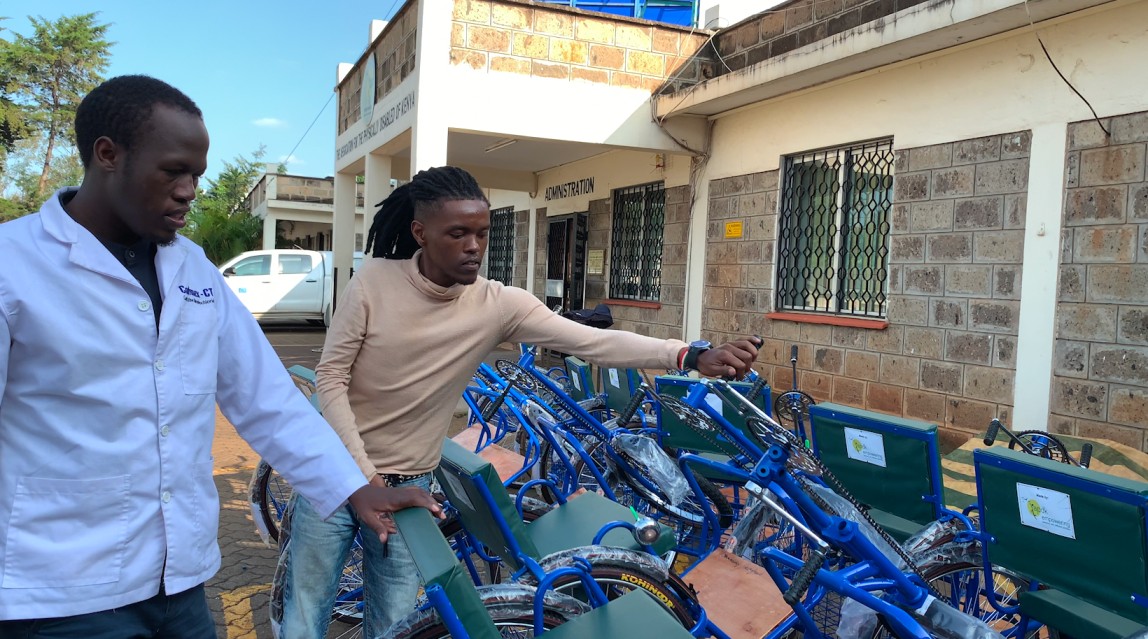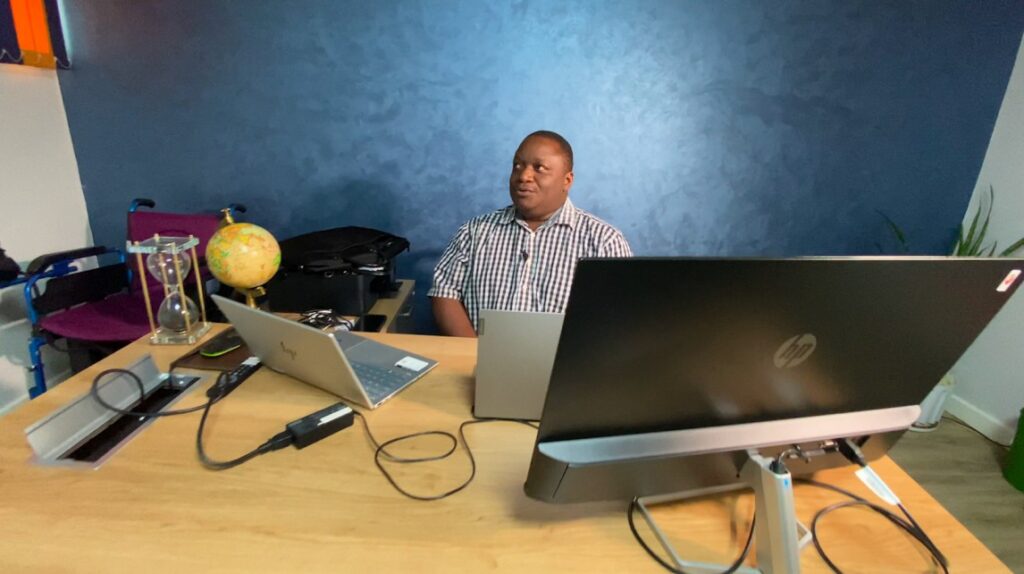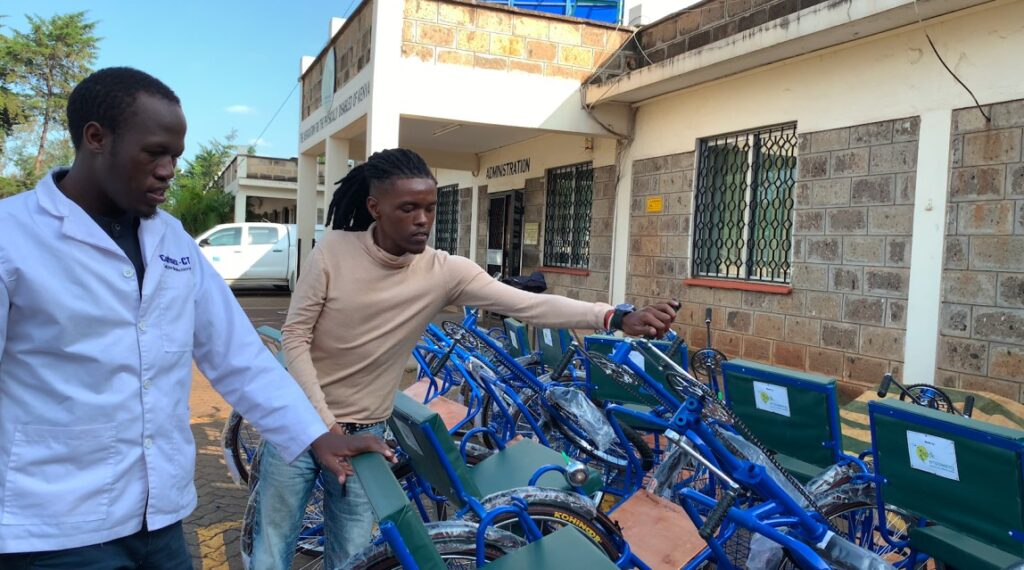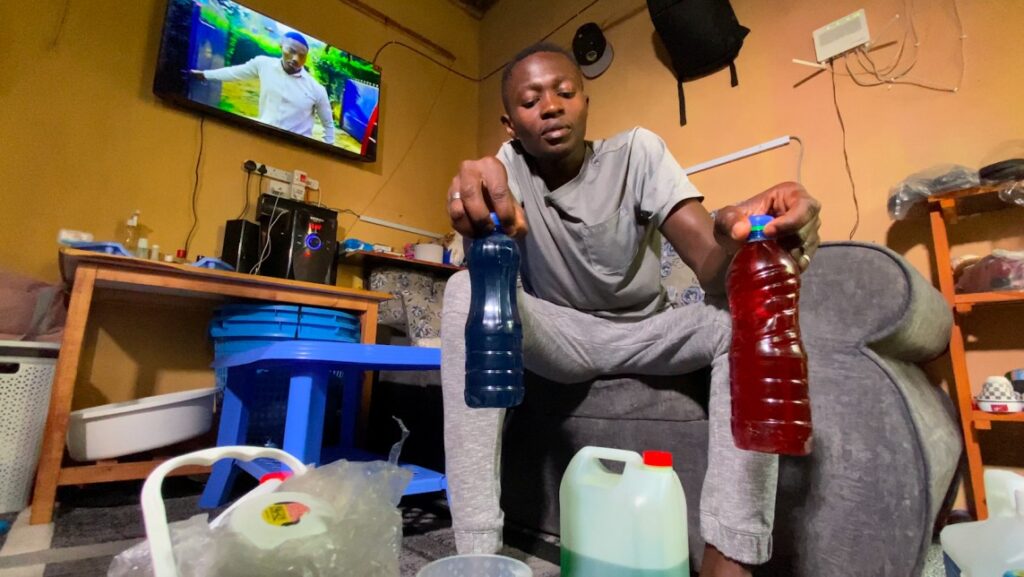
East African startup pioneers inclusion and opportunities for persons with disabilities
Globally, an estimated 1.3 billion people, nearly 16 percent of the population, live with disabilities, according to the World Health Organization.
However, in most cases, people living with disabilities are confronted with a myriad of challenges including discrimination as well as being denied access to equal opportunities like the rest.
Fredrick Ouko is the founder of the Kenyan startup Riziki Source. Driven by his own challenges and experiences as a person with a disability, he faced the tough reality of job searching despite being qualified. When he could not secure employment, he decided to help others like him find opportunities.
A tech-driven solution to inequality
At the heart of Riziki Source is a tech-enabled platform that connects job seekers with disabilities to employers, bridging the gap between untapped talent and inclusive workplaces.
“To solve the challenge of connecting persons with disabilities to employment opportunities, we’ve developed a mobile app where job seekers can sign up, upload their CVs, and share details about their qualifications, location, and the type of work they’re seeking. We then match them with suitable employers,” explains Ouko.

With nearly 1,700 job seekers registered and 415 successful placements, Riziki Source is more than just a job-matching tool—it’s a practical solution for dismantling systemic inequality.
Success stories
One such success is Isaac Mwenja, who now works as a Communications and Advocacy Officer at the Association of Physically Disabled of Kenya (APDK). Mwenja credits Riziki Source for equipping him with job skills and connecting him to his current role.
“I joined APDK in early 2024. The skills I gained through Riziki Source were instrumental in helping me secure this job,” Mwenja shares.
The platform also supports entrepreneurs like Dickson Ondiek, a student at the Cooperative University of Kenya who runs a detergent production business.

“The internship empowered me with employability skills, including handling workplace dynamics and managing customer relations,” Ondiek says.
Riziki Source goes beyond job placement. It provides training and resources to help employers create inclusive workspaces while supporting entrepreneurs with disabilities through programs like Inua Biz.
Ken Njeremani, an entrepreneur and owner of a film studio in the small town of Kapsabet in Nandi County, is a believer in social inclusion. His studio employs five people, two of whom are persons with disabilities (PWD). One of them, he says, was recruited through a connection with Riziki Source, an organization that supports PWDs in finding employment opportunities.
“I’ve been aware of Riziki Source for some time, and I was actively looking for a person with a disability to bring balance to my small company,” Ken explains. “When the opportunity came up, I reached out to Riziki Source to find a suitable candidate. I wanted to provide this opportunity not just to give back to the community, but to ensure that people with disabilities have equal access to work in spaces like mine.”
Ken’s commitment to inclusivity reflects a growing awareness in Kenya of the importance of offering opportunities to underrepresented groups, particularly in the creative industries.
The founder of Riziki Source, Ouko says that there is also a lack of information and knowledge on the part of some employers. They do not know much about the various types of people with disabilities and this can lead to discriminating PWDs in the job market.
“Some employers don’t know how to work with people with various types of disabilities. We train them on interviewing and supporting individuals, whether they are visually impaired, Deaf, or using wheelchairs,” he says.

The organization also aims to address systemic challenges by offering support to those who were unable to progress beyond high school due to educational discrimination.
Despite being qualified, people with disabilities often face stigma in the workplace.
“Sometimes, opportunities are offered out of sympathy rather than recognizing our qualifications and capabilities,” says Ondiek.
Ouko hopes that more organizations like his will emerge across Africa to support individuals with disabilities in achieving their personal goals while breaking down barriers. He emphasizes that people with disabilities possess unique talents and abilities, but these can only be fully realized if they are given the same opportunities as everyone else.






